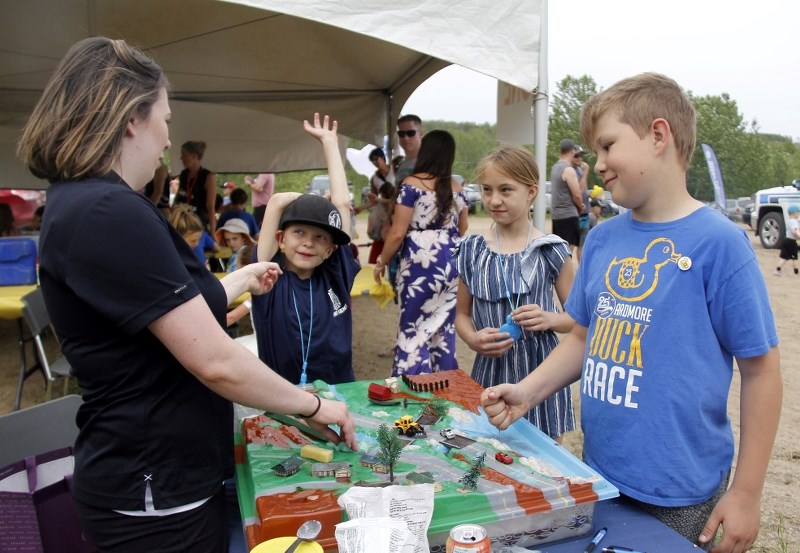The Lakeland Industry and Community Association (LICA) is hoping teaching the youth of today will result in a better tomorrow.
Through various school programs, LICA is enriching the minds of local students, teaching them the importance of caring for the environment.
“When you’re young, you’re taught not to litter and to turn off the tap when you’re brushing your teeth. These are things that are built into the kids, but we want to help expand those life lessons,” expressed LICA education coordinator Erin Ritchie. “We want to help kids learn that maybe they shouldn’t wash their cars in the driveway because that soap goes into our bodies of water, to pick up after your pets, and even why it’s important to turn off your car when you go inside of the grocery store.”
LICA hopes that by instilling this knowledge early on, students will carry these habits with them into adulthood.
“This way, when they grow up, they themselves become environmental stewards,” Ritchie said.
The organization offers programs such as the Little Green Thumbs, classroom presentations, and Clean Air Responsible Schools (CARS), among others.
Each program is geared towards the grade and curriculum of the class. LICA works with students between Kindergarten and Grade 12, so what and how they learn varies.
“The programs are specified to fit the curriculum, so hopefully it ties in nicely to what teachers are already teaching the kids,” explained Ritchie.
“I think it’s important to have these types of programs, because when you have a special presenter come in and you’re doing hands on activities or you’re outside, they tend to absorb the knowledge easier and it retains for a long period of time. Especially if they’re having fun with the activities.”
The lessons teach students important aspects of the environment. For example, the Little Green Thumbs program has classes grow an indoor garden, where they learn about air quality, water, and composting.
Depending on the age group, teachers will also use the gardens to teach math and shapes.
Although LICA doesn’t provide the gardens, they assist schools by offering presentations, teacher training, and support.
This particular program also shows students the importance of composting, by using a worm compost system.
“That teaches them about nutrients and what happens to your garbage when you send it to the landfill versus compost, and also what can and can’t be composted,” described Ritchie.
Every year, LICA hosts a calendar contest. Ritchie believes this is one way of getting youth to think creatively about the watershed.
For high school classes, they have the chance to take their learning out of the classroom.
Ritchie explained, “We have our X-Stream Science program, which is aimed for students in Grade 9 to 12. We go out in the field and do a survey of the river. We look at the quality of the water, invertebrates, the physical and chemical properties of the river, and we ask them to tell us the information they have gathered and the overall health of the river.”
Tanice Joly, Grade 4 teacher at Glendon School, also believes in the importance of teaching kids about the health and sustainability of the environment.
“We do a lot of stuff with planting. We have planted our own flowers, we have a garden tower in our classroom, and we’ve had presentations,” she said. “They need to understand what our day-to-day products are made of, how we can keep recycling things that are non-renewable, and also how we can keep our environment thriving and replenishing themselves by learning how to plant and the basics of gardening.”
They also talk about climate change, and the impact humans, industry, and even animals are having.
But regardless of where they are learning, Ritchie believes it’s vital for local youth to learn about the animals and habitats that are in the area.
“They don’t always know so much about what’s in the local area and what’s living in their own backyard. We want to bring their knowledge closer to home.”



